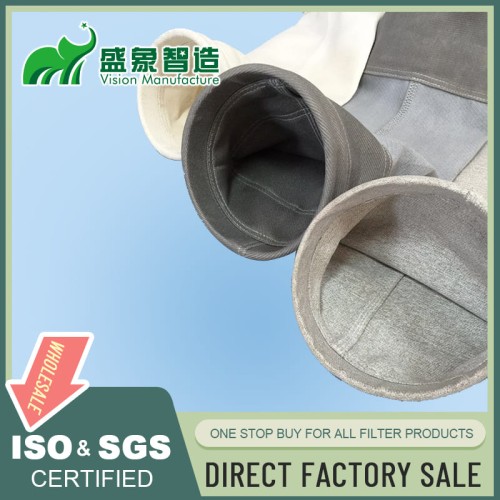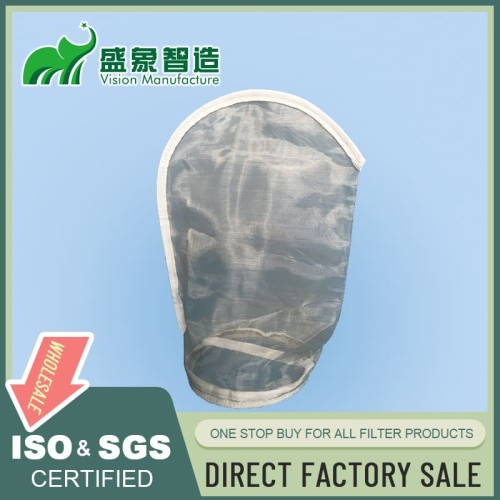
Exploring the World of Filter Bags: Unveiling Types and Applications
I. Introduction
In the intricate landscape of industrial filtration, filter bags play a pivotal role. This article delves into the various types of filter bags, shedding light on their diverse applications and the factors influencing their selection.
|
Heading |
|
I. Introduction |
|
II. Understanding Filter Bag Basics |
|
III. Common Types of Filter Bags |
|
A. Polyester Filter Bags |
|
B. Nylon Filter Bags |
|
C. Polypropylene Filter Bags |
|
IV. Applications Across Industries |
|
A. Industrial Manufacturing |
|
B. Water Treatment |
|
C. Pharmaceutical |
|
V. Factors Influencing Filter Bag Selection |
|
A. Micron Ratings |
|
B. Temperature Resistance |
|
C. Chemical Compatibility |
|
VI. Importance of Proper Maintenance |
|
VII. Addressing Environmental Concerns |
|
VIII. Conclusion |
|
IX. FAQs |
II. Understanding Filter Bag Basics
Before we embark on exploring different types, it's essential to grasp the fundamental purpose of filter bags. These are specialized containers designed to capture and separate impurities from liquids or gases, ensuring a cleaner output.
III. Common Types of Filter Bags
A. Polyester Filter Bags
Polyester filter bags are renowned for their durability and resistance to abrasion. Used in diverse industries, these bags effectively filter out contaminants, making them a popular choice for demanding applications.
B. Nylon Filter Bags
Nylon filter bags offer versatility and strength. Their exceptional chemical resistance makes them suitable for applications involving corrosive substances, contributing to efficient filtration processes.
Polypropylene filter bags excel in applications where moisture resistance is crucial. Widely used in water treatment, these bags effectively remove impurities, ensuring the purity of the treated water.
IV. Applications Across Industries
A. Industrial Manufacturing
In industrial settings, filter bags are deployed to capture pollutants and particles, enhancing air quality and maintaining optimal operational conditions.
B. Water Treatment
The water treatment sector relies on filter bags to eliminate contaminants, providing clean and safe water for various purposes.
C. Pharmaceutical
In pharmaceutical manufacturing, maintaining a sterile environment is paramount. Filter bags aid in achieving the required level of cleanliness in critical processes.
V. Factors Influencing Filter Bag Selection
A. Micron Ratings
Micron ratings dictate the size of particles a filter bag can effectively capture. Choosing the right micron rating is crucial for achieving the desired level of filtration.
B. Temperature Resistance
Different applications demand filter bags with varying temperature resistances. Understanding these requirements ensures optimal performance in diverse environments.
C. Chemical Compatibility
Chemical compatibility is a critical consideration, especially in industries dealing with aggressive substances. The right filter bag material prevents deterioration and ensures longevity.
VI. Importance of Proper Maintenance
Regular maintenance is essential for prolonging the lifespan of filter bags. Following manufacturer guidelines for cleaning and replacement prevents performance degradation.
VII. Addressing Environmental Concerns
As environmental consciousness grows, the filtration industry is embracing sustainable practices. Biodegradable filter bag options contribute to reducing the environmental impact of industrial processes.
VIII. Conclusion
In conclusion, the world of filter bags is diverse, with each type serving specific needs across various industries. Understanding these nuances empowers businesses to make informed decisions, optimizing their filtration processes.
IX. FAQs
1. Are polyester filter bags suitable for high-temperature applications?
Polyester filter bags exhibit good temperature resistance, making them suitable for moderate to high-temperature environments.
2. Can nylon filter bags be used in the food industry?
Yes, nylon filter bags with food-grade certification are commonly used in the food and beverage industry.
3. What is the typical lifespan of polypropylene filter bags?
The lifespan varies based on usage and maintenance but is generally several months to a few years.
4. How often should filter bags be replaced for optimal performance?
Replacement frequency depends on factors like contaminant load and operating conditions. Regular inspections help determine replacement timing.
5. Are filter bags with lower micron ratings always better?
Not necessarily. The choice depends on the specific application, and a balance must be struck to avoid excessive clogging and pressure drop.
Additional Resources:
· U.S. Environmental Protection Agency (EPA)
· World Health Organization (WHO)
· Occupational Safety and Health Administration (OSHA)


